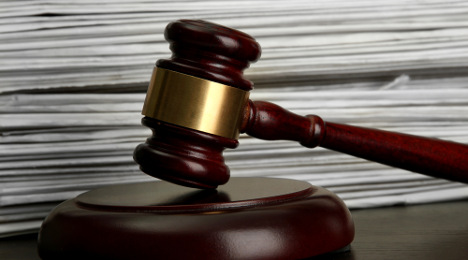CFPB discusses possible collections regulation during ACA Convention

By subscribing, you agree to receive communications from Auto Remarketing and our partners in accordance with our Privacy Policy. We may share your information with select partners and sponsors who may contact you about their products and services. You may unsubscribe at any time.
MINNEAPOLIS –
Attendees at last week’s ACA International 2016 Convention & Expo in Denver heard first-hand from the Consumer Financial Protection Bureau about its potential regulatory moves in the collection space.
Officials from ACA International, the Association of Credit and Collection Professionals, pointed out the CFPB has yet to put out a notice of proposed rulemaking regulating the credit and collection industry, but the bureau continues to oversee the industry through enforcement actions, supervision and examination.
During the conference, Greg Nodler, the CFPB’s senior counsel for enforcement policy and strategy, joined attorneys Jonathan Pompan and Alexandra Megaris from Venable to discuss how the bureau conducts itself related to the debt collection marketplace and how it plans to regulate the industry in the future.
Nodler did not give a date by which he expects the CFPB to release its much-anticipated notice of proposed rulemaking for the debt collection industry. He said the next step in the rulemaking process would be to convene a SBREFA (Small Business Regulatory Enforcement Fairness Act) panel and publish an outline of the panel’s findings on how the proposed rule would impact small businesses.
Pompan said the rule would likely cover multiple categories of business operations and collection activities in a “soup to nuts” scope.
“For all intents and purposes, it’s entirely possible that by the time the rule is out, the CFPB will have already done something related to the category it’s addressing, either through enforcement, supervision or amicus briefs,” he said.
Subscribe to Auto Remarketing to stay informed and stay ahead.
By subscribing, you agree to receive communications from Auto Remarketing and our partners in accordance with our Privacy Policy. We may share your information with select partners and sponsors who may contact you about their products and services. You may unsubscribe at any time.
In fact, ACA highlighted much of the panel’s discussion focused on the CFPB’s other major activities related to the credit and collection industry: enforcement actions, supervision and examination, advocacy and partnership and handling debt collection complaints.
Nodler explained that CFPB exams let companies know what the bureau will look for, and the CFPB’s supervisory highlights reports discuss exam findings so “companies can look at them and see if they’re engaged in the same activity.”
In addition, enforcement actions are a way to let the industry know if a particular issue is a big priority for the CFPB, according to Nodler. However, there are times when the CFPB decides it’s not necessary to bring public action against a company for a compliance violation.
“Supervisors will talk to enforcement about how the exam went, and they’ll say whether or not the company was genuine about making a mistake,” Nodler said. “For instance, if the company is giving restitution on their own, that’s the biggest factor to me. We have done it, but the civil penalty is minimal and we mention the restitution in our press materials.”
Megaris added, “The CFPB is one of the most transparent of the federal agencies. While the rule is taking a lot longer than expected, there are resources out there to let you know what the expectations are.”


